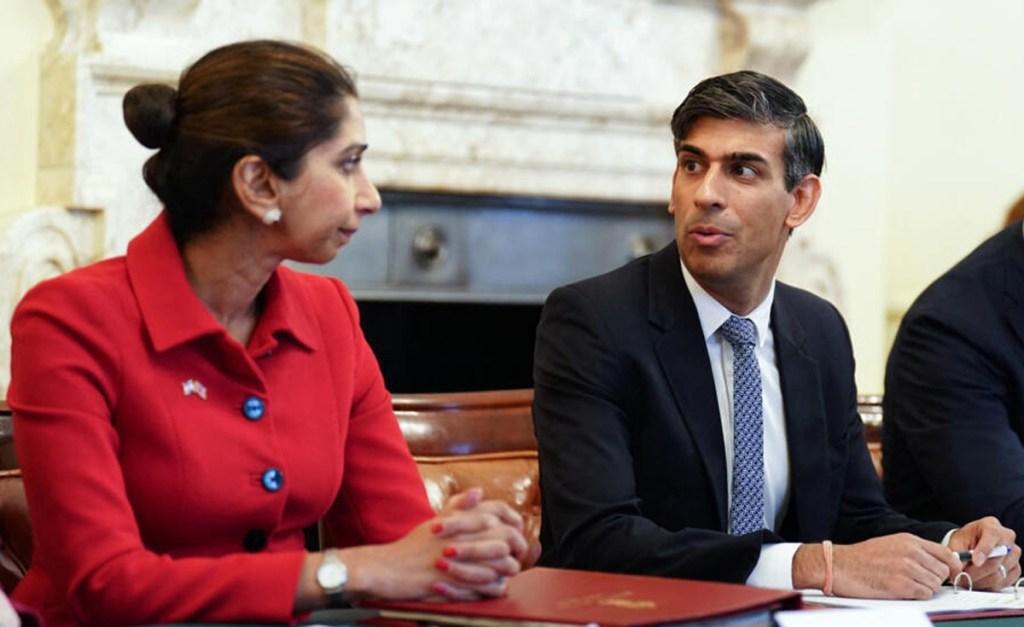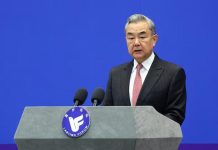Africa-Press – Mauritius. Rishi Sunak took everyone by surprise last Monday by announcing the dismissal of Suella Braverman and a cabinet reshuffle with the return of former Prime Minister David Cameron in the process.
Suella Braverman made herself known thanks to her positions on the right of the British Conservative Party. An ardent defender of Brexit, she had positioned herself as a key element of Sunak’s government, with responsibility for the very important Ministry of the Interior.
Her often controversial positions and statements, particularly on issues related to migrants, had made her a character hated by the left and moderates. But she was rather popular in ultra-conservative circles.
Moreover, it was an article published in the newspapers where she accused the London police of having been too hands-off towards pro-Palestinian demonstrators which was at the origin of her downfall.
This article had been edited by the PM’s staff, but Braverman ignored the recommendations of 10 Downing Street and published it in its original version, thus igniting the powder between the PM and the Secretary of State.
Interior. In reality, there is nothing surprising in this. For a while now, Rishi Sunak has shown a certain unease with the ultra-conservative fringe of his party.
He needed their support to propel himself to 10 Downing Street without going through a vote by party members, but he was often careful to distinguish himself from certain positions considered too right-wing.
In return, Rishi Sunak has often been accused of denying conservative values in favor of an overly social political agenda. But beyond personal and political affinities, the departure of Suella Braverman and the cabinet reshuffle that followed is much more politically relevant than it appears on the surface.
In parting ways with Braverman, Sunak also sidelined a group of influence that was beginning to alienate many within the Conservative vote, particularly those representing the moderate liberal right who were readily beginning to look towards Labor Party leader Keir Starmer, for the next elections.
Thus, Braverman’s departure also represents a realignment of the party’s position toward the center, which produces two effects. First, Sunak clearly wants to reassure the historic Tory electorate and bring back to him the Liberals who criticized him for being too lax towards the ultra conservatives.
And secondly, by dismissing Braverman, Sunak is also trying to isolate Boris Johnson who no longer hides his intentions to challenge the leadership of the current PM to lead the Tories in the next legislative elections.
The surprising return of David Cameron must also be understood in this sense. On the one hand, Sunak recalls a former Prime Minister whose experience and skills are recognized (despite recent affairs).
And, on the other hand, the return of Cameron can only be read as an alliance between Sunak and the moderates of the Tories in order to stand up against the ultra conservative fringe of the party.
Rishi Sunak will thus have a few months to prepare the government for the next elections, and this reshuffle sends certain signals which are intended to be absolutely clear and precise.
The return of David Cameron will be particularly scrutinized, in particular because he will have to be able to deliver the trade agreements that Sunak is struggling to finalize with India and certain African countries.
This return to foreign affairs also has some importance in Mauritius, for us who are in the middle of a momentous negotiation with the British government for the return of Chagos and a resolution for Diego Garcia.
David Cameron was fiercely opposed to the “claim” of the Republic of Mauritius on the Chagos when he was PM. What will happen now that he is Minister of Foreign Affairs?
Our Malagasy friends were called to the polls this Thursday to choose their new president. These elections are taking place under high tension with an opposition which has continued to denounce irregularities.
Andry Rajoelina, the outgoing president, is running to win a second successive mandate despite the about-face of Siteny Randrianasoloniaiko, an ally who became his first challenger.
For its part, the majority of the opposition has aligned itself with the Collective of 10 (a collective of 10 candidates) which is calling for a boycott of the elections.
This collective even organized a series of demonstrations in Antananarivo, where the police had to intervene to disperse the demonstrators, sometimes even making arrests.
Moreover, the United Nations human rights office issued a letter indicating that the Malagasy security forces had shown excessive force and zeal against peaceful demonstrators.
The fact that two candidates were injured in the protests has not helped the Malagasy police restore their reputation. Despite the growing crisis, the High Constitutional Court upheld the elections by postponing them by a week. But why such an outcry?
In fact, the opposition criticizes the outgoing president for not being eligible to run again because he received French nationality in 2014, which implies renouncing his Malagasy nationality, therefore making him ineligible in Madagascar.
. Indeed, Malagasy law would affirm that citizens born in Madagascar do not have the right to dual nationality. Only naturalized Malagasy people (thus born elsewhere) can benefit from retaining their original nationality.
However, this is not the case for Andry Rajoelina who was born in Madagascar and who applied for French citizenship for personal reasons so that his children could study in mainland France. Thus, the latter declared that the Malagasy authorities did not notify him of a withdrawal of nationality. But this is also where the problem arises.
According to the opposition, the Rajoelina regime has gradually taken control of the institutions, slowing down their proper functioning and compromising the separation of powers on the Big Island. This may seem paradoxical coming from Madagascar, which is not exactly a country known for its political and economic stability.
Quite the contrary, the current regime seems to have succeeded in bringing a certain stability to a country known for a succession of coups d’état and for being one of the poorest countries on the planet.
For More News And Analysis About Mauritius Follow Africa-Press







